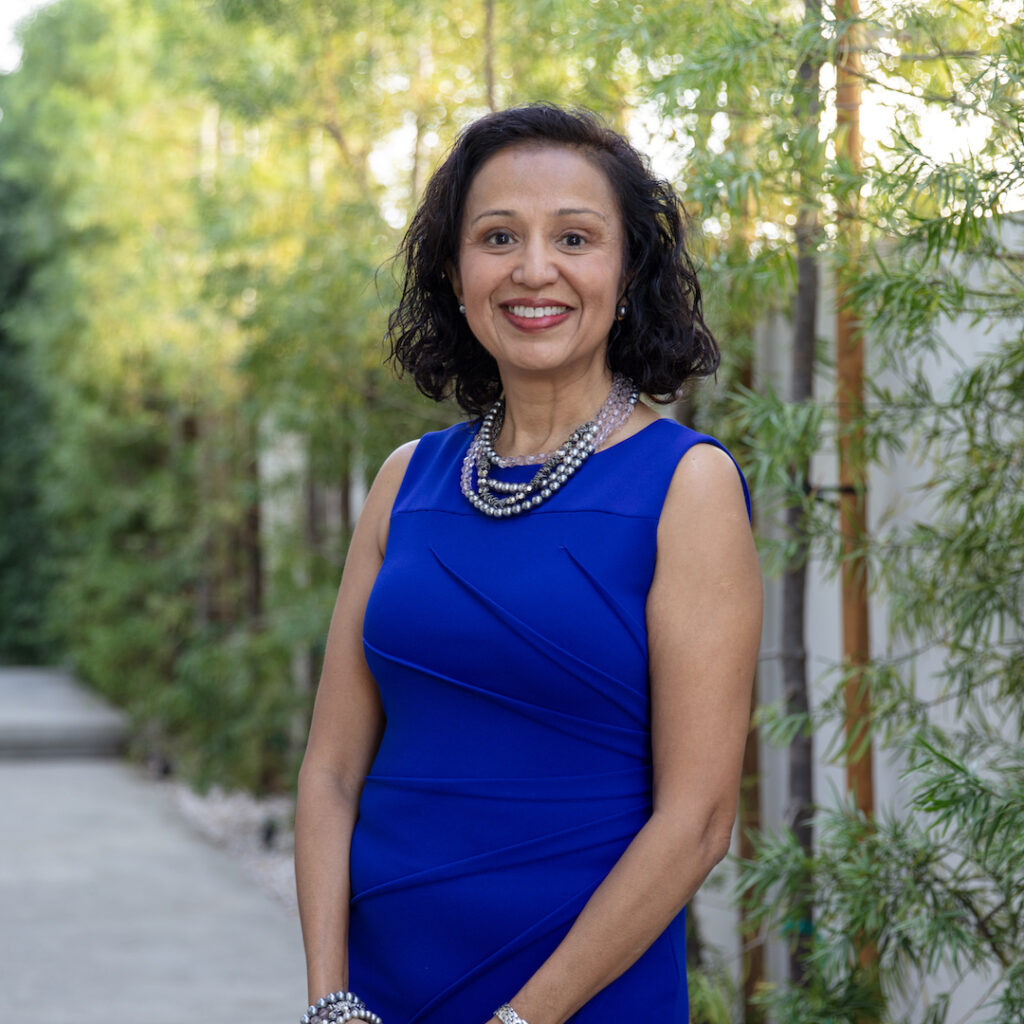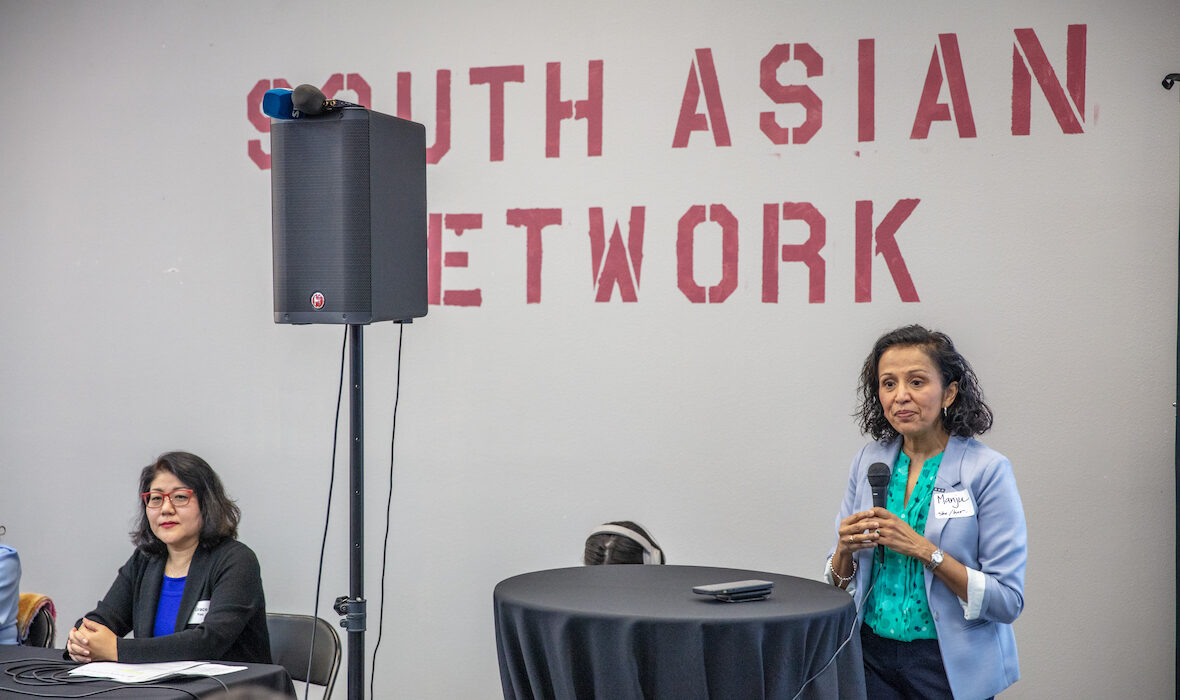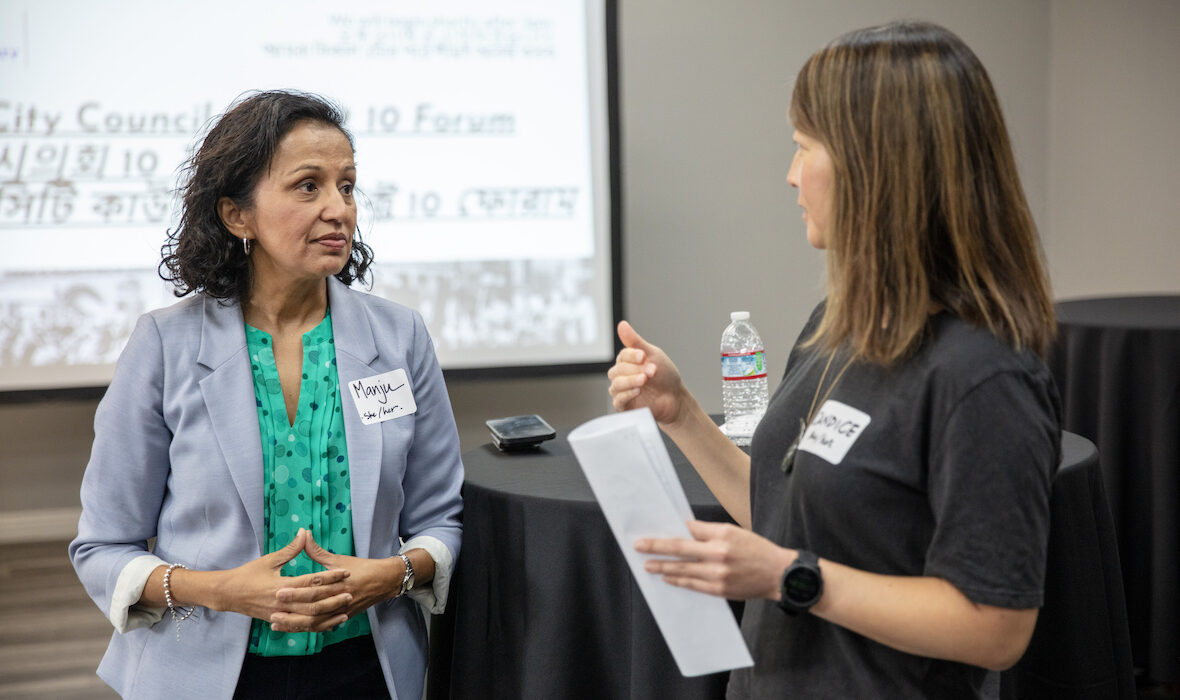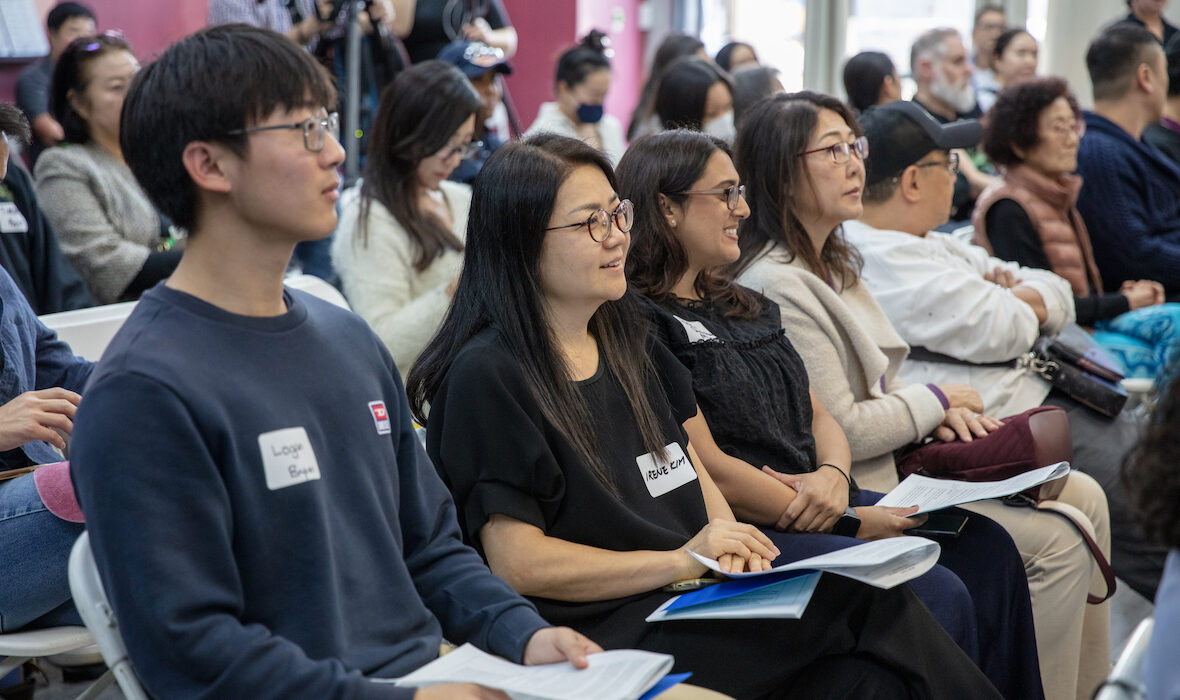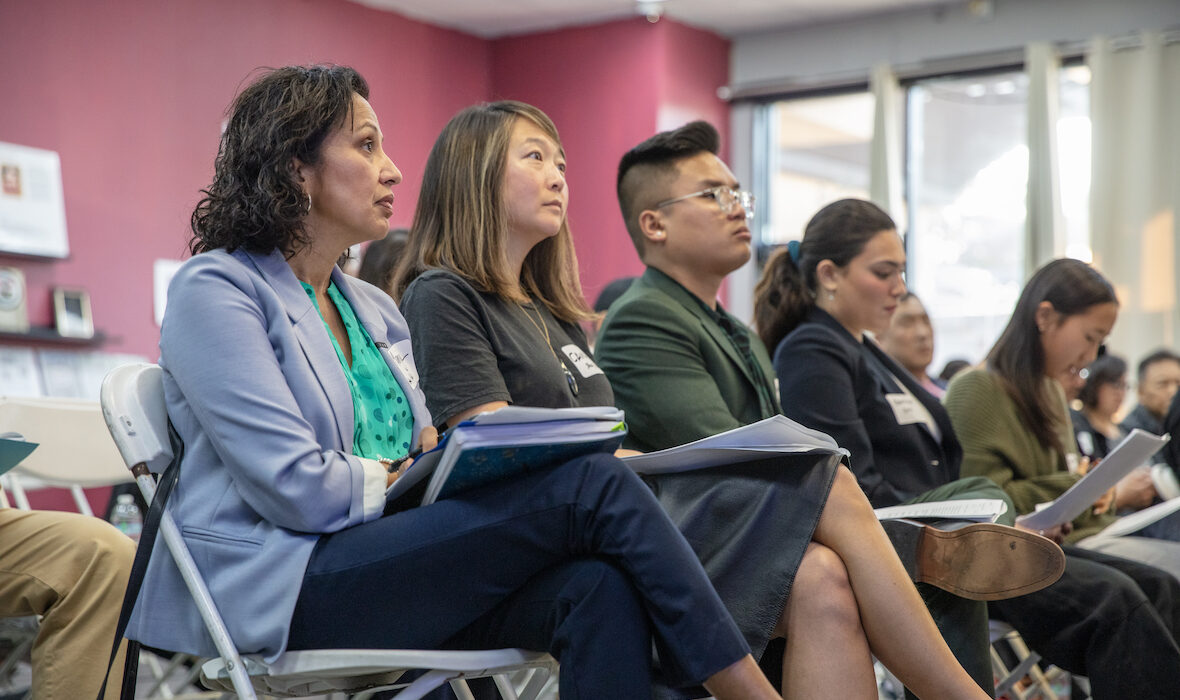Confronting hate and discrimination against Asian American and Pacific Islander
communities with data, partnerships, and policy solutions
Overview
Systemic discrimination against Asian American and Pacific Islander (AAPI) communities has existed throughout California’s history, from immigration bans to the Japanese American incarceration during World War II. Manjusha Kulkarni’s parents, two Alabama-based physicians, immigrated with her from India when she was two. As a teen, Kulkarni observed her mother file a successful class action lawsuit against the state over discriminatory policies against non-European doctors. This experience, along with incidents that made her feel “othered” as one of the only AAPI students in school, seeded Kulkarni’s activism and compelled her to pursue a law degree and a career in civil rights.
After engaging in critical work in civil rights and health law and policy, she was entrusted to lead AAPI Equity Alliance (formerly A3PCON) in 2017. Kulkarni led the forty-year-old organization into a new era, growing it from a behind-the-scenes organization to one that leads groundbreaking work in health care access, interpersonal violence, and mental health. AAPI Equity Alliance is now a coalition of over 40 organizations that serves the 1.6 million Asian American and Pacific Islanders in Los Angeles and beyond, confronting discrimination, fighting mental health disparities, and pushing for legal and policy changes. Kulkarni is also a co-founder of Stop AAPI Hate, a national coalition that collects data and fights racial injustice targeting Asian Americans and Pacific Islanders.
“There is a lot of work to be done to know and understand what is happening in our communities, and then bring about belonging for significant populations.”
Primary Regions Served
Challenge
- AAPI residents make up 15.5% of California’s population, including 1.6 million people in Los Angeles County.[1] In 2020, anti-AAPI sentiment surged due to scapegoating around COVID-19. Since then, hate-based violence and institutional racism have persisted against AAPI communities.
- Acts of hate most frequently occur in public spaces like streets, parks, transit systems, and retail establishments, where existing civil rights protections have had limited power. Most hate acts experienced by AAPIs are not crimes, so increased policing or other carceral solutions fail to help.
- Widespread racial discrimination faced by Asian Americans and Pacific Islanders impacts mental and physical health, causing intergenerational trauma. Studies also link discrimination to cardiovascular issues, depression, and substance use disorders.[2]
Innovation
- A coalition of over 40 organizations, AAPI Equity Alliance offers advocacy, civic engagement, and strategies for improving AAPI Angelenos’ well-being. This includes deploying multilingual community health workers, developing culturally tailored domestic violence prevention strategies, and assessing the mental health impact of racial trauma and offering healing practices.
- Kulkarni guides efforts to legally enshrine inclusion practices and advance state policies to address discrimination. AAPI Equity Alliance has established a resume bank and is distributing it to public employers throughout Los Angeles county, aiming to boost AAPI representation on city and county boards, commissions, and elected officials’ staff.
- In February 2020, after a local Asian American child was attacked at the start of the COVID pandemic, Kulkarni led the nation’s first press conference with policymakers and advocates garnering international attention on the discrimination Asian Americans and Pacific Islanders were facing. Soon after, Kulkarni co-founded Stop AAPI Hate to collect incident reports.
- Stop AAPI Hate collects, disseminates, and analyzes self-reported incidents of hate to unearth deeper trends and identify impactful solutions. Stop AAPI Hate’s database of personal stories from AAPI community members brings their experiences to life and urges policymakers to act.
Impact
- Collaborating with the Asian Pacific Islander Legislative Caucus, Kulkarni supported the acquisition and allocation of $166 million for a state “API Equity Budget,” including $110 million to community-based organizations for hate prevention and victim support, and successfully advocated for supplemental funding in 2023.
- AAPI Equity has influenced local policy changes, including convincing the Los Angeles County Registrar of Voters to establish three vote centers in Chinatown and Koreatown, where there initially were none.
- With Stop AAPI Hate, Kulkarni has pushed for long-term solutions to hate and discrimination through a combination of community storytelling, data analysis, public engagement, commentary, and advocacy. Kulkarni works to build solidarity with other communities of color by looking beyond carceral solutions, which harm Black, Latinx, and Indigenous communities without making AAPIs safer from hate.
- In its first two years, Stop AAPI Hate’s reporting center received more than 11,000 reports of hate from community members. With its Stop AAPI Hate partners, AAPI Equity helped to draft, sponsor, and successfully advocate for bills informed by this data, including SB 1161 (2022) and SB 434 (2023) which address harassment on transit.
Opportunity
- Anti-AAPI hate continues to appear in new forms, fueled by xenophobic and inflammatory political rhetoric and racist policies. Kulkarni and her team plan to take urgent, powerful actions to combat hate wherever it arises and enact solutions.
- Kulkarni aims to continue analyzing community data, harnessing the collective power of AAPI Equity Alliance’s 40 partners, and strengthening the movement that grew around Stop AAPI Hate to advance innovative
- AAPI Equity Alliance is a steering committee member of OUR LA, a multi-racial coalition seeking to establish an independent city redistricting commission in response to the racist practices revealed in the prior redistricting cycle. The coalition hopes to expand the number of city council districts in Los Angeles to increase representation.
The written profile and video reflect the work of the leader(s) the year they received a Leadership Award. Please contact the leader(s) for current information.
